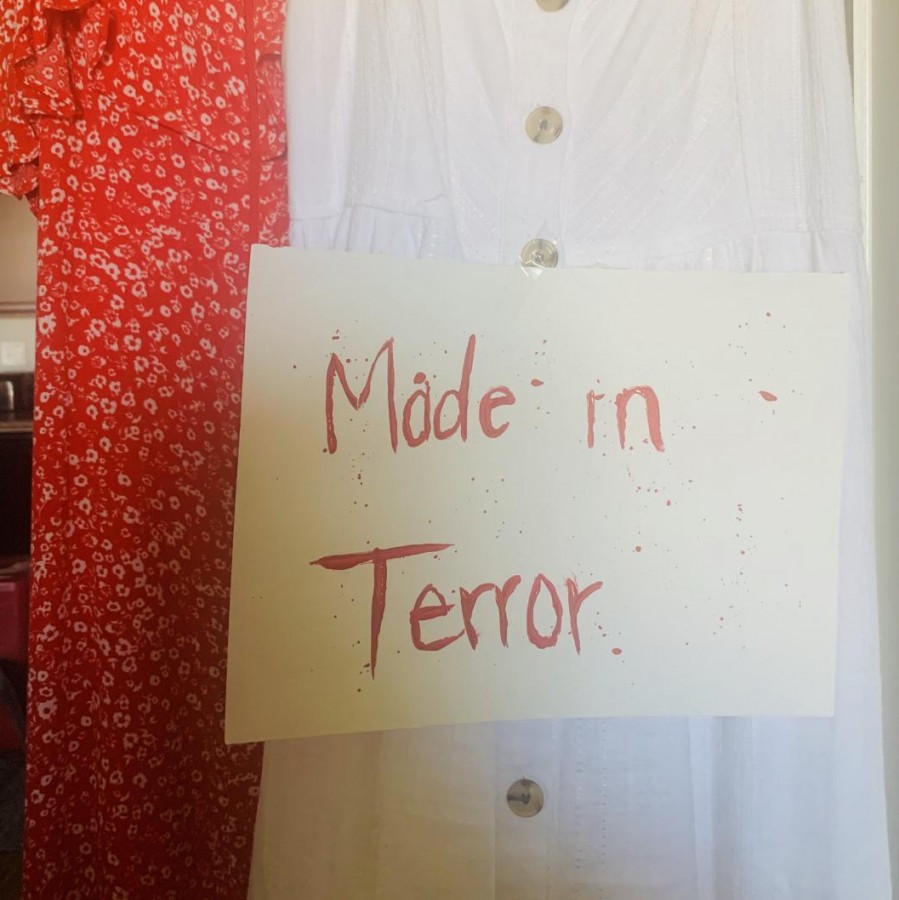While Bangladesh has taken steps to decrease child forced labor over the past few years, adult laborers still face horrific conditions. 80 percent of these garment industry workers are women experiencing strikingly inhumane conditions.
Women experience sexual harassment and rarely receive maternity leave-regardless of the famous corporations they work for. The industry does not pay as much as 35.39 U.S dollars per month, despite employees working 14 to 16 hours a day for 29 days a month. The people of Bangladesh work day and night so Americans can wear brands such as Victoria Secret and Tommy Hilfiger.
A vast amount of clothing companies are outsourced from China due to the fact China’s human labor is extremely inexpensive. Although outsourcing is not illegal, what does it say about American clothing companies?
Senior Muskan Basnet, co-leader of Girls Learn International, highlighted an issue within American culture. “The lack of awareness on this issue itself says a lot about the American culture. When there isn’t something happening on American soil many people don’t care about it,” explained Basnet.
Another issue which has had minor media coverage is the treatment of the Uyghur under The People’s Republic of China.
Uyghur forced labor
In China there is an ongoing mass genocide of Muslims-specifically the Turkic Uyghur people in Xinjiang. 1.8 million Muslims and other ethnic groups are being held in concentration, reeducation and forced labor camps. 84 percent of cotton products come from Xinjiang, located in the north western part of China.
Claims have been made that popular brands such as Nike and Calvin Klein have knowingly used Uyghur-forced labor to make their clothes. Companies such as Apple, have not released a statement on the issue. H&M has pulled out of the region altogether due to their concern about the indirect relationships they have with China.
Basnet continued to talk about how people need to stay informed about the issues American brands are involved in. “The lives of the Uighur Muslims are in danger and we have the power to stop it. Many people don’t even know this is happening in China, let alone that brands are using forced labor from these camps for their own profit,” she elaborated.
What has the government done to fix relations corresponding with the genocide?
In light of these accusations and the continuous detaining of muslims in Xinjiang, The U.S House of Representatives approved the “Uyghur Forced Labor Prevention Act.” This act banned the outsourcing of goods from Uyghur. Although the act does not possess the power to ban all goods from China in the U.S.-there will be more regulations added to make sure the products were made willingly.
Senior Callahan Morton believes there is action young adults can take when it comes to this global issue. “Our fashion companies should be based in the United States to avoid fast fashion production which underpays and exploits workers,” Morton commented.
However, she realizes this is not an easy change for large businesses to make. “Until that happens we must be cognizant of where our clothes are coming from and we must be careful when it comes to which businesses we support,” Morton explained.
There are several ways the American people can take action against this crisis: not supporting brands which use Chinese workers for profit and condoning the establishments in which they work.
















Helen • Oct 6, 2020 at 12:48 pm
Corea, I was not aware of the concentration camps and abuse the Muslims have had to endure in China. Thank you for writing about this issue.